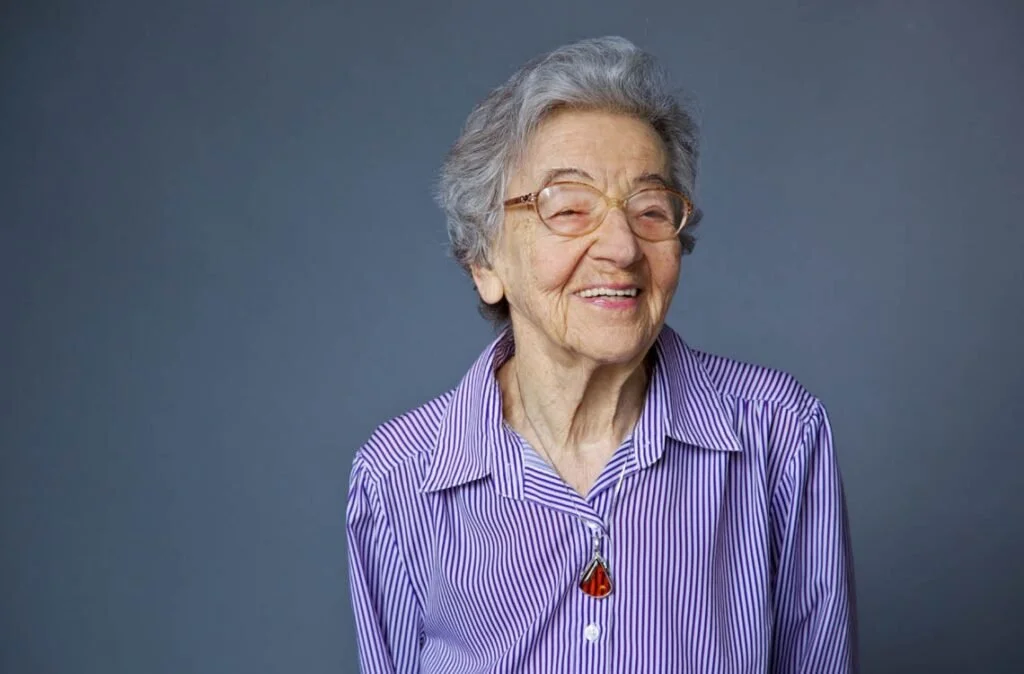Ursula Franklin
Ursula Franklin by Mark Neil Balson
“Technology involves organization, procedure, symbols, new words, equations, and most of all, it involves a mindset.” (Franklin 1999, 17)
As part of the UCRF initiative ‘Path Breakers — Path Finders’ where we celebrate the many voices who have inspired and guided the work of change over many years, including systems change in fashion, we turn our attention to Ursula Franklin. Thank you to UCRF member Dr Mark Joseph O’Connell for nominating Professor Franklin.
University of Toronto Professor Emerita, Ursula Franklin is described as one of Canada’s “most accomplished scientists and educators and one of its most renowned feminists and peace activists”. A physicist working in metallurgy, her research on Strontium-90 in baby teeth was “instrumental in achieving a moratorium on atmospheric nuclear weapons testing” and in 1967 she became the first female professor of materials science and engineering at U of T, and in 1984 became the first woman to receive the title of University Professor which is the highest academic rank at U of T (UToronto.ca). Although always a scientist in process and methods, Franklin also brought refreshing alacrity to her observations. She referenced her children, her experience as a holocaust survivor, her spiritual faith and the anti-nuclear movement, and used examples like knitting, baking a cake, and gardening, to illustrate her highly sophisticated (and powerful) theoretical analyses. In her 1989 Massey College five-part lecture series given in Toronto (The Real world of Technology (1999)), Franklin identified and outlined many issues around technology and society with remarkable prescience. She compared technology to democracy, noting that both include “ideas and practices” as well as: “myths and various models of reality” (18). Her conclusion was that our love of new technologies bred isolation instead of connection, and that government policy was focused on supporting nascent technologies at the expense of citizens and the environment.
For me as a queer fashion sustainability scholar, her tireless social activism, the success of her grassroots work, and the persistent way she presented her ideas in a unique, individualized voice were all hugely inspirational. The latter in particular as it was exactly this perspective that she brought to her analyses that was missing from larger social directives driving the policy guiding and governing technology and society (then as now). — Dr Mark Joseph O’Connell.
Franklin, Ursula. 1999. The Real world of Technology. House of Anansi.
To take part in Path Breakers — Path Finders, please send:
The name of the path breaker-finder you would like to feature
A short description of their work and its significance including to fashion and sustainability (<300 words) and
An appropriate image with credit to: info@concernedresearchers.org

